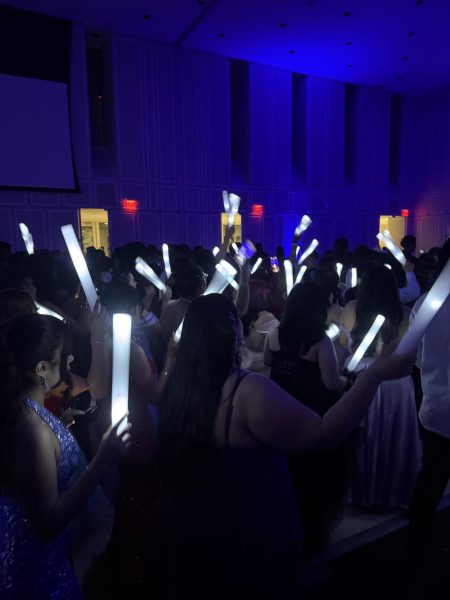Work Overload at the End of the School Year?
It’s the end of the school year and students are checked out and ready for summer. But, teachers are overloading them with work, assigning essays, orals, and multiple choice exams. Giving us a lot of work isn’t really the problem, what is the problem is that they are getting work that could’ve been divvied out equally throughout the entire school year in the last month. Students are forced to scramble to finish our work and unlike earlier in the year, the deadline is June 16th instead of the end of the quarter.
This last minute overload is the most problematic for juniors. Junior year is arguably the most difficult year of high school for many reasons. One, that is the year students enroll in more AP or IB classes. They can also choose to do the full IB program which involves work outside of school. Second, juniors have to begin applying to scholarships, colleges, and universities. Third, most juniors get a job of some sort, which gives them less time to focus on school. Most importantly, junior year is when you get the most school work, while also having to get the best grades to send to different colleges and universities. If we are bombarded with work the last month of school, it makes what should be a stress free time, an extremely stressful time.
“It’s too much work. There’s literally 2 weeks left of school,” Natenin Cisse (junior). Allaine Hontiveros, another junior, spoke to the teachers directly and said,
“Don’t say you feel bad for us but then give 4 more things to do.”
In a survey from USA Today, 27% of students said they felt extreme stress during the school year vs. only 13% during the summer. But according to Noelle Leonard, a senior research scientist at NYU, she regards the anguish of high school students as “good stress.” Scientifically, our well being relies on maintaining homeostasis, which is our bodies ability to maintain a state of equilibrium. If the stress in young individuals is constant (throughout the school year) and caused by more than one source (classes, teachers, other students, homework, parents, etc.), it can cause negative long term effects e.g., stress related disorders and chronic diseases (more information).
Mrs. Amanda Trivers, the IB coordinator, understood that school work should be given out at a balanced rate throughout the school year: “Part of being in school is learning how to manage time, and part of the teacher’s responsibility is to prepare you for college. However, the best situation is when we can balance the tasks throughout the semester rather than giving an abundance of work at the end of the quarter.”
Many other teachers don’t feel that our workload in general is a problem, as I know from being in school for 12 years, and in a survey from the CDC from 2009 to 2015, the percentage of high school students who reported they had serious thoughts of committing suicide went from 14% to 18% and is still increasing. The percentage of high school students who actually required medical attention as a result of a suicide attempt also increased from 1.9% to 2.8%. 2.8% of high school students in the United States is equal to roughly 1.4 million students.
In all seriousness, school will become a less weighted stressor if the work is spread out equally throughout the school year, instead of piled on top of us at the end. Teachers should sympathize with students and understand that high school is not where all our time should be spent. Yes, students needs to spend a significant amount of time learning and doing work, but it should not be a stressor that drives students to overwork themselves.




